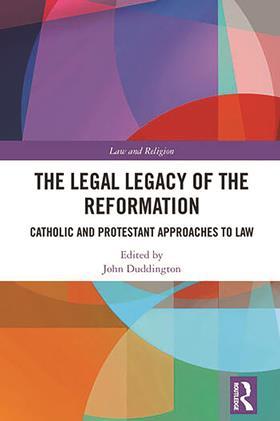The Legal Legacy of the Reformation: Catholic and Protestant Approaches to Law
Edited by John Duddington
£135, Routledge
★★★★✩
On 31 October 1517 Martin Luther, a German friar, nailed a list of 95 points of disagreement with the Catholic Church’s teachings to the door of the church at Wittenberg castle. Luther catalysed the Reformation, splitting Europe into religious camps, with some realms remaining Catholic and others embracing the Protestant creed. The split caused the Holy Roman Empire – an agglomeration of primarily German-speaking principalities – to fall into civil war, which concluded with the Treaty of Augsburg in 1555, in which the empire permitted local princes to adopt Catholicism or Lutheranism as their realm’s official faith – Cuius regio, eius religio – leaving the empire a religious patchwork.
Five centuries later, economist Jörg Spenkuch identified different societal attitudes to working hours between neighbouring German regions. The regions with cultures of longer hours mapped on to the Protestant regions of the empire after Augsburg.

The Reformation is still felt, often in unexpected ways. This collection of essays argues that the schism of Christendom created distinctive attitudes to law within the various denominations that still have something to say on contemporary issues. Beginning with reviews of denominational attitudes to internal governance, and church-state relations, the work is best where it turns to specific issues, such as marriage and education, conscience, and charity law. David McIlroy’s chapter on the Reformation and human rights is fascinating, tracing the modern conception of human rights to natural law, and the inherent dignity of a humanity created in God’s image.
An overarching theme is that the Reformation’s heritage means it is not always possible to identify a single Christian view on many of these issues; there may be a Catholic view, a Presbyterian view, and so forth. As a Catholic, I understand this. It is hard to square, for example, the Presbyterian view of governance with the Catholic view on the role of the Pope. However, in most cases, Catholic and Protestant views on the substance of law are distinct, but not so far apart. In the end, of course, we all have the Incarnation and the Resurrection in common.
There is a lot of wonderful content here. Those with a particular interest will find it worth their time, although there may be some more general interest. Pricey, but fascinating.
James E Hurford is a solicitor at the Government Legal Department, London































No comments yet